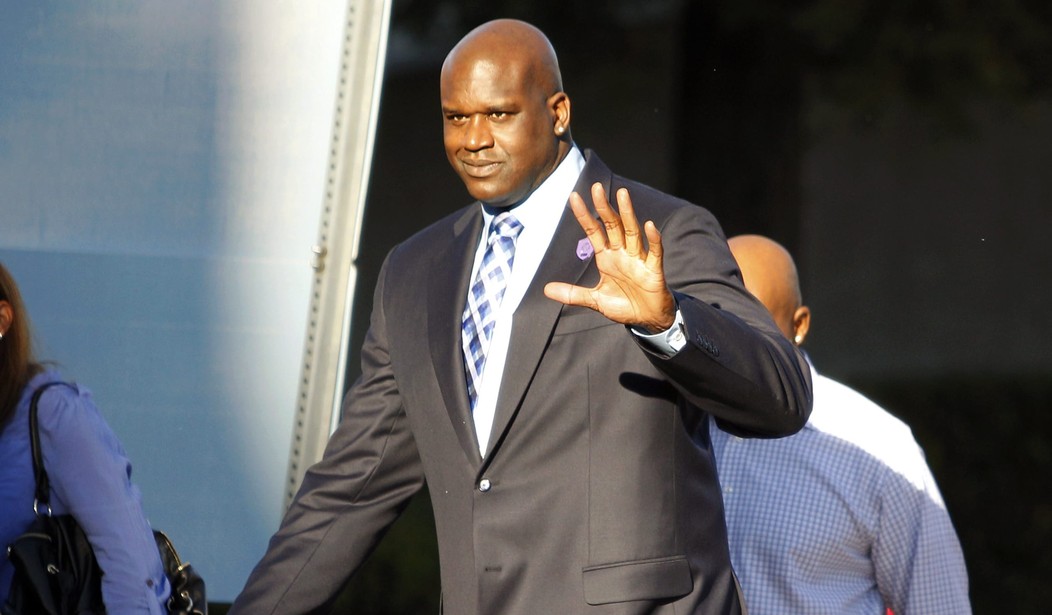WASHINGTON – During an event on Capitol Hill with NBA Hall of Famer Shaquille O’Neal, law enforcement officials identified some of the challenges local governments and police departments are facing in states that have legalized marijuana.
Shaq, a reserve police officer in South Florida, joined the officials during a briefing focused on the growing problem of “drugged driving.”
“Identifying drug-impaired drivers can be very difficult, time consuming and costly,” O’Neal said at the Capitol Hill briefing sponsored by Responsibility.org on Nov. 30. “So it’s specialized training that’s needed to detect them.”
He explained that Responsibility.org has committed to provide two years of funding for law enforcement training grants starting in 2016. O’Neal said Florida, Illinois, Nevada and Texas have each received grants and matching funds, and 500 officers were certified as Drug Recognition Experts (DRE). He announced a second round of grants going to more states next year.
“We are working to make Congress more aware of the difficulties officers face and what can be done to help make our roads and communities safer,” Shaq said.
Capt. Darnell Davenport of the Southwest Division at the Los Angeles Police Department said California’s legalization of marijuana would have a “significant impact” on the department’s resources and the “ability to do our job.”
Davenport said the department needs more funding for the specialized drug recognition training.
“As a patrol commanding officer, I have a great concern because I recognize I don’t have a lot of people who don’t have the ability to recognize drugs other than alcohol, so consequently we need a lot more training as it relates to [marijuana],” he said. “Next year we’ll have three classes with drug recognition experts, but in a city of three million people three classes and maybe 10 officers per class is not a significant number, and so we need a lot more funding as it relates to that.”
Darrin Grondel, secretary of the Governors Highway Safety Association, director of the Washington Traffic Safety Commission and a captain in the Washington State Patrol, explained that fatal crashes caused by drugged driving have risen since 2014 in his home state, which legalized marijuana.
He noted that there is no “breath test” to detect marijuana but toxicology reports now test for the drug.
“It’s not only just marijuana, it’s other illicit drugs, it’s prescription drugs and over-the-counter medicines that sometimes we take for granted,” he said. “It’s having the understanding that those things can impair and you can be arrested and charged for driving under the influence.”
Chuck Hayes, drug evaluation and classification (DEC) program manager for the International Association of Chiefs of Police, said drugged driving has put a “burden” on toxicology labs in his home state of Oregon and across the country.
“There’s a lot of work that needs to be done in that area,” he said.
Watch the video on the next page.
Hayes said four days after legalization passed in Oregon an 18-year-old man was driving down a city street in Portland while smoking marijuana from a pipe and killed a woman in the crosswalk.
“We have learned from some of the examples from Colorado and Washington on what Oregon needed to do to get better prepared for this as it came our way. In this particular case near Portland, we had two DREs that were on duty from different agencies that responded. One DRE took charge of the actual crash itself and the other DRE actually took charge of doing the evaluation on the suspected driver,” he said. “As a result of that we were able to gain a very quick prosecution and a guilty plea from the suspect in that case.”
Hayes said Oregon had to get more specialized training for officers as a result of the legalization of marijuana.
“Our goal in Oregon is to have every patrol officer trained in Advanced Roadside Impaired Driving Enforcement (ARIDE),” he said.
O’Neal quickly left the room after the briefing and did not take questions from reporters.









Join the conversation as a VIP Member